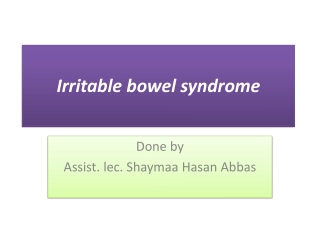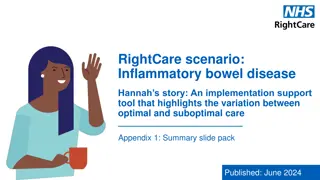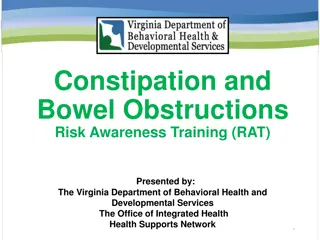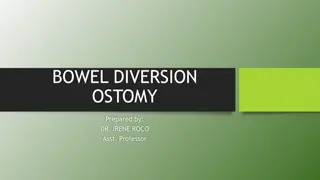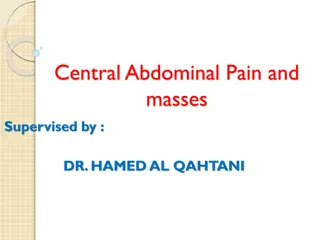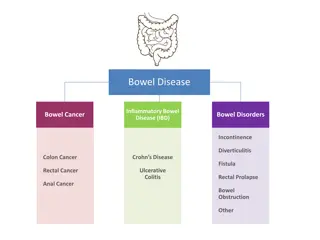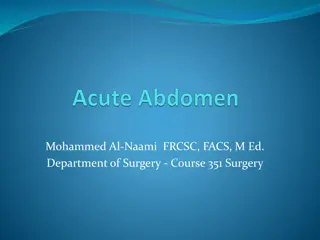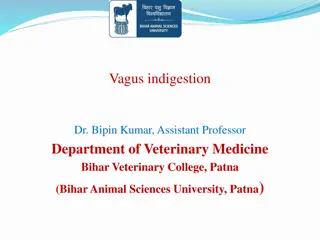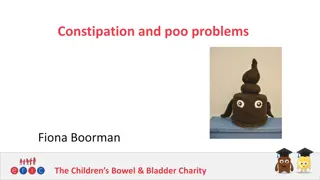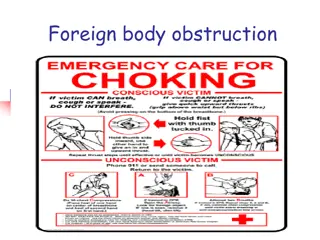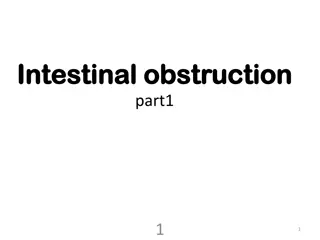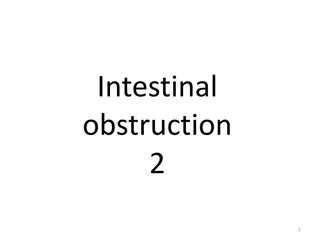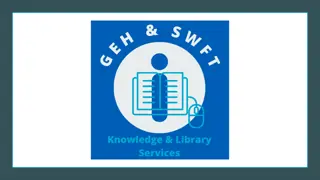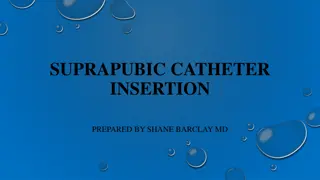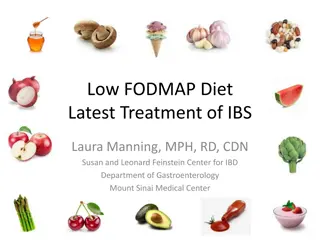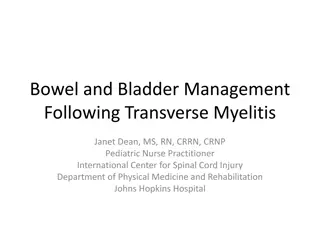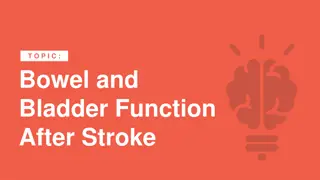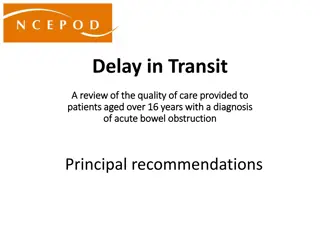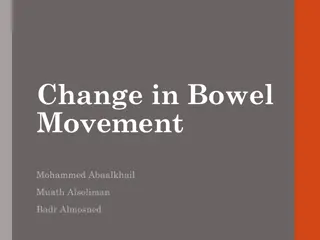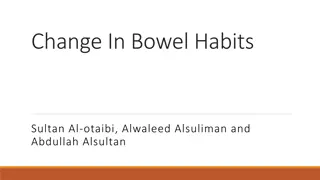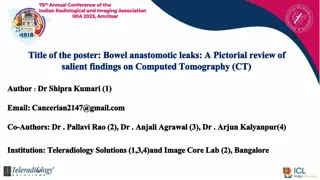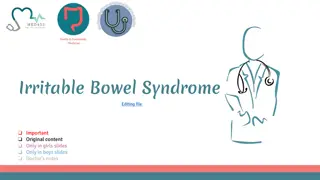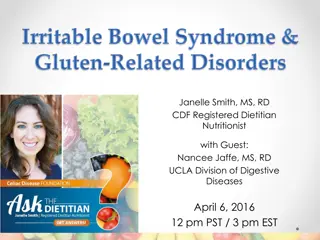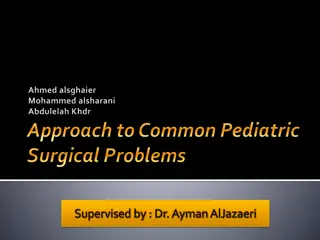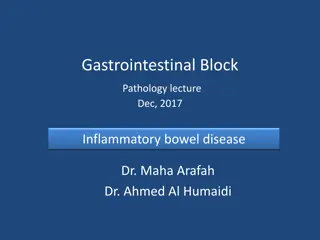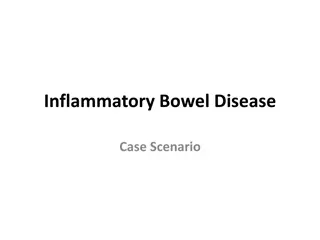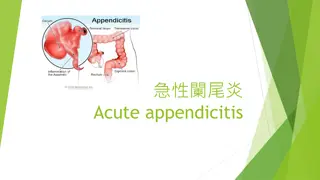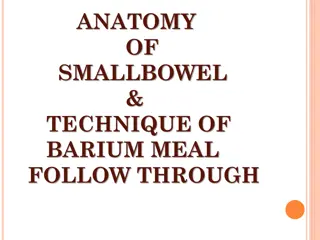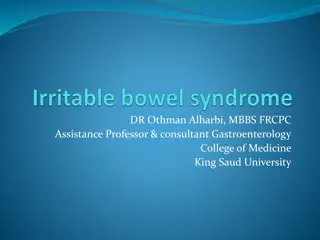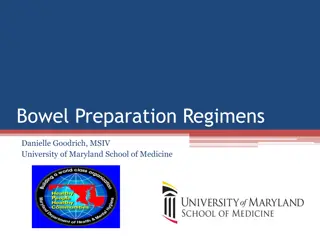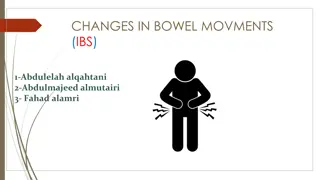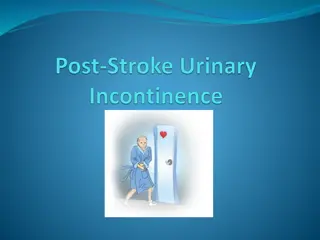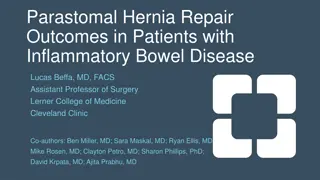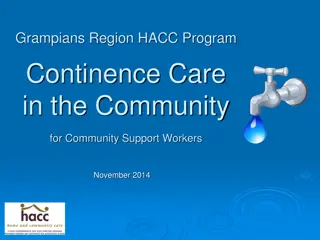Irritable bowel syndrome
Information on the aims of treatment, aggravating factors, treatment timescale, and non-drug and drug treatment options for irritable bowel syndrome (IBS). It also includes a list of relevant medications and their effects.
16 views • 39 slides
Understanding Liver Function Tests in Cholestatic Injury
Cholestatic liver disease affects Alkaline Phosphatase (ALP) and bilirubin levels, indicating bile duct damage. GGT and 5'-Nucleotidase help differentiate hepatobiliary vs. bone origin of ALP elevation. ALP is produced by bile duct epithelium and can be normal in acute biliary obstruction. GGT and N
1 views • 33 slides
Managing Power Platform Risk with an Environment Strategy by Frank Shink, Senior Power Platform Design Engineer at Ameriprise Financial
Frank Shink, a seasoned professional, delves into the risks associated with Power Platform, from development risks to cost risks, and offers insights on tools and strategies to combat these risks effectively. He emphasizes the importance of environments, DLP policies, and licensing strategies in mit
1 views • 20 slides
Hannah's Struggle with Inflammatory Bowel Disease: A Journey of Challenges and Lessons
Hannah, a vibrant young woman with a bustling social life and active routines, experiences a series of setbacks in her battle with Inflammatory Bowel Disease (IBD). Her journey highlights the importance of timely diagnosis, access to proper care, and comprehensive support services to manage the cond
0 views • 9 slides
Understanding Constipation and Bowel Obstructions Risk
This training program by The Virginia Department of Behavioral Health and Developmental Services focuses on defining constipation, identifying causes and complications, recognizing bowel obstructions, and understanding signs and symptoms of fecal impaction. Caregiver recommendations and the roles of
0 views • 26 slides
Understanding Bowel Diversion Ostomy: Definition, Classification, and Management
Bowel diversion ostomy involves creating an opening in the gastrointestinal tract to divert and drain fecal material. This summary covers the definition, purpose, classification (permanent vs. temporary ostomies, types of intestinal ostomies), management, assessment, and changes associated with osto
0 views • 14 slides
Understanding Central Abdominal Pain and Masses in Clinical Practice
Abdominal pain evaluation involves considering various differential diagnoses such as appendicitis, small bowel obstruction, and mesenteric ischemia. By categorizing pain as visceral, parietal, referred, or radiating, healthcare providers can better understand the underlying pathology. The history o
0 views • 57 slides
Understanding Bowel Diseases and Their Management
Understanding the causes and mechanisms of bowel diseases such as inflammatory bowel disease (IBD), bowel cancer, diverticulitis, Crohn's disease, and more is crucial for effective treatment. Genetic predisposition, environmental factors, immune malfunction, age-related issues, and lifestyle choices
0 views • 5 slides
Comprehensive Overview of Acute Abdomen Assessment and Management
This detailed guide covers the definition, general approach, history taking, physical examination, investigations, diagnosis, and management of acute abdomen cases. Learn about common causes, such as acute appendicitis, bowel obstruction, and medical conditions. Real-life scenarios illustrate differ
2 views • 15 slides
Understanding Vagal Indigestion in Ruminants: Causes and Types
Vagal indigestion in ruminants is a functional disturbance affecting the fore stomachs, leading to symptoms like rumen distention, inappetence, bradycardia, and more. It is not a specific disease but a syndrome with various underlying causes such as injury, inflammation, or mechanical obstruction. T
1 views • 14 slides
Understanding Constipation and Poo Problems in Children
This resource provides insightful information on constipation and related issues in children, including causes, symptoms, treatments, and the impact on bowel and bladder health. It covers various topics such as bowel actions, medications, normal bowel function, and the significance of recognizing an
0 views • 21 slides
First Aid for Foreign Body Obstruction: Causes, Signs, and Management
Learn about the common causes of foreign body obstruction, preventive measures, signs of airway obstruction, and how to manage airway obstruction in adults, children, and infants. Discover the steps to take for a conscious choking victim and an unconscious victim, including performing the Heimlich m
0 views • 20 slides
Understanding Intestinal Obstruction: Causes, Classification, and Pathophysiology
Intestinal obstruction can be classified into dynamic and adynamic types, with various causes such as intraluminal faecal impaction, malignancy, and hernia. The pathophysiology involves changes in bowel peristalsis and dilation, leading to potential strangulation and ischemia. Morbidity and mortalit
9 views • 40 slides
Radiological Features and Clinical Presentations of Intestinal Obstruction
Intestinal obstruction can manifest with various clinical features such as sudden severe pain, tenderness, fever, and more. Imaging plays a crucial role in diagnosing obstruction, with X-rays showing characteristic findings in the small bowel and colon. Different types of obstructions like strangula
0 views • 43 slides
Identifying and Mitigating GBV Risks in COVID-19 Response for Food Security in Rakhine State, Myanmar
Rakhine State faces challenges of conflict, displacement, and restricted movement, with many relying on food assistance. Cash assistance implementation did not escalate GBV risks. The COVID-19 restrictions heightened the need for adjustments in programming, requiring monitoring of assistance changes
0 views • 5 slides
Understanding Artificial Intelligence Risks in Short and Long Term
This content delves into the risks associated with artificial intelligence, categorizing them into short-term accident risks and long-term accident risks. Short-term risks include issues like robustness problems and interruptibility, while long-term risks focus on competence and alignment challenges
0 views • 15 slides
Understanding Bowel Cancer: Facts, Prevention, and Awareness Efforts
Bowel cancer, also known as colorectal cancer, is a significant health concern, being the fourth most common cancer in the UK. It is essential to be aware of the symptoms, risk factors, and preventive measures associated with this condition. By maintaining a healthy diet, managing body weight, and s
0 views • 9 slides
Suprapubic Catheter Insertion Procedure Guidelines
Suprapubic catheter insertion is a procedure indicated for conditions such as urethral injury, obstruction, bladder neck masses, and benign prostatic hypertrophy. It involves proper patient positioning, analgesia, equipment preparation, and a step-by-step technique including bladder palpation, marki
1 views • 12 slides
Understanding the Low FODMAP Diet for Managing IBS
Irritable Bowel Syndrome (IBS) is a common condition that affects millions of people, with symptoms like abdominal pain, bloating, and altered bowel habits. The Low FODMAP diet is a promising approach to managing IBS by reducing certain types of carbohydrates that can trigger symptoms. This diet inv
0 views • 53 slides
Bowel and Bladder Management Post Transverse Myelitis
Following transverse myelitis, there can be significant changes in bowel and bladder function, impacting storage, release, and coordination. Neurogenic bowel and bladder issues, differentiated by injury level, can lead to challenges in controlling sphincters and bathroom habits. Understanding these
0 views • 23 slides
Understanding Irritable Bowel Syndrome (IBS) and Effective Solutions
Irritable Bowel Syndrome (IBS) is a common digestive disorder affecting 1 in 5 people, characterized by symptoms like abdominal cramps, bloating, changes in bowel movements, and fatigue. This condition has various triggers, including infections, stress, and certain medications. Managing IBS involves
0 views • 36 slides
Understanding Bowel and Bladder Issues Post Stroke
Bowel and bladder incontinence are common after a stroke, often due to brain damage affecting control functions. Factors like mobility can exacerbate these issues, leading to discomfort, infections, and other complications. Managing incontinence involves assessing individual needs, recognizing signs
0 views • 10 slides
Review of Care for Patients with Acute Bowel Obstruction: Recommendations and Key Findings
This review assesses the quality of care provided to patients aged over 16 years with acute bowel obstruction. Significant delays were identified in the care pathway, from imaging requests to availability of operating theatres. Recommendations include prompt CT scans with intravenous contrast for de
0 views • 32 slides
Understanding Changes in Bowel Habits and Irritable Bowel Syndrome (IBS)
Changes in bowel habits can indicate underlying conditions like Irritable Bowel Syndrome (IBS), which affects millions worldwide. Learn about the symptoms, diagnosis, and management of IBS through practical examples and multiple-choice questions. Discover how psychological treatments like cognitive-
0 views • 58 slides
Addressing Climate Change Risks: Guidance for Senior Managers and Board Members
This slide pack tool provides guidance on addressing climate change risks for senior managers and board members. It covers key messages such as understanding obligations and gaps, identifying climate change risks, exploring responsibilities, and implementing actions to address these risks effectivel
0 views • 11 slides
Understanding Change in Bowel Habits and Irritable Bowel Syndrome
This informative content covers topics such as the definition, etiology, and classification of Irritable Bowel Syndrome (IBS), the diagnosis and management of IBS, alarm symptoms to look out for, and when to refer patients to specialists. It also includes a role-play scenario for a focused abdominal
0 views • 33 slides
Bowel Anastomotic Leaks: Salient Findings on CT - Pictorial Review at IRIA 2023, Amritsar
Anastomotic leaks post gastrointestinal surgery can have serious consequences if undiagnosed. This pictorial review presented at the 75th Annual Conference of the Indian Radiological and Imaging Association in Amritsar focuses on the importance of timely CT imaging interpretation for detecting and d
1 views • 10 slides
Understanding Irritable Bowel Syndrome: Pathophysiology, Symptoms, and Management
Irritable Bowel Syndrome (IBS) is a common gastrointestinal condition with uncertain pathophysiology involving factors like motility, hypersensitivity, inflammation, and gut microflora. Symptoms include abdominal pain, altered bowel habits, and bloating. Diagnosis is based on Rome IV criteria, and m
0 views • 9 slides
Understanding Irritable Bowel Syndrome (IBS), FODMAPs, and Gluten-Related Disorders
This webinar discusses the relationships between Irritable Bowel Syndrome (IBS), FODMAPs, and gluten-related disorders, covering topics such as the definition of IBS, its relationship with Celiac Disease and Gluten Sensitivity, the Low FODMAP diet, and functional gut disorders. Functional GI symptom
0 views • 24 slides
Pediatric Intestinal Obstruction: Causes, Symptoms, and Management
Pediatric intestinal obstruction in newborns and older children can result from various conditions such as foregut obstruction, midgut obstruction, and hindgut obstruction. Common causes include esophageal atresia, pyloric stenosis, and Hirschsprung disease. Diagnosis involves clinical evaluation, i
0 views • 81 slides
Understanding Inflammatory Bowel Disease: Crohn's Disease and Ulcerative Colitis
Inflammatory Bowel Disease (IBD) encompasses Crohn's disease (CD) and ulcerative colitis (UC), chronic conditions with immunologic basis. This article delves into the epidemiology, pathophysiology, and differences between CD and UC, highlighting clinical features, pathology, and complications like a
0 views • 42 slides
Inflammatory Bowel Disease Case Study: Diagnostic Challenges and Treatment Decision
A 56-year-old male with a history of inflammatory bowel disease presented with severe symptoms necessitating hospitalization. Despite steroid therapy, lack of improvement led to consideration of a total colectomy. Colonoscopy and biopsy results favored ulcerative colitis over Crohn's disease. This c
0 views • 31 slides
Pathophysiology of Acute Appendicitis
Necrosis, perforation, and arterial compromise in acute appendicitis lead to lumen obstruction, increased luminal pressure, bacterial growth, and venous obstruction. Symptoms typically include periumbilical or epigastric pain due to visceral pain caused by lumen obstruction.
0 views • 7 slides
Understanding Small Bowel Anatomy and Barium Meal Technique
Exploring the anatomy of the small bowel, including the duodenum, jejunum, and ileum, as well as the technique of a barium meal follow-through. The small bowel is a convoluted tube extending from the pylorus to the ileocecal valve, averaging 6-7 meters in length. The duodenum, characterized by its C
0 views • 34 slides
Understanding Irritable Bowel Syndrome and Its Pathophysiology
Irritable bowel syndrome (IBS) is a common gastrointestinal disorder characterized by chronic abdominal pain and altered bowel habits. Despite the absence of organic causes, patients experience symptoms such as abdominal distention, bloating, and visceral hypersensitivity. The pathophysiology of IBS
0 views • 19 slides
Bowel Preparation Regimens for Colorectal Cancer Screening
Overview of bowel preparation regimens for colorectal cancer screening, emphasizing the importance of adequate bowel cleansing to enhance the effectiveness of colonoscopy. Highlights the impact of different dosing regimens on patient compliance, colon cleansing, and detection rates of small polyps.
0 views • 20 slides
Understanding Irritable Bowel Syndrome: Symptoms, Diagnosis, and Management
Define constipation and diarrhea, discuss the definition, etiology, and classification of IBS, explain how to diagnose IBS, list alarm symptoms and differential diagnosis, provide a management plan and follow-up, and recognize when to refer to a specialist. People with irritable bowel syndrome may s
0 views • 35 slides
Stroke Continence Protocols for Managing Bladder and Bowel Function After Stroke
This protocol outlines the management of urinary and bowel incontinence in stroke patients, emphasizing high nursing care levels and avoiding unnecessary catheterization. It discusses normal bladder functions, urinary dysfunction prevalence post-stroke, and interventions for promoting continence. Ur
0 views • 30 slides
Outcomes of Parastomal Hernia Repair in Inflammatory Bowel Disease Patients
This study examines the outcomes of parastomal hernia repair in patients with inflammatory bowel disease, specifically comparing outcomes between those with Crohn's disease and ulcerative colitis. The research, conducted from 2012 to 2022, analyzes data from 392 patients, highlighting factors such a
0 views • 16 slides
Understanding Continence Care in the Community
Continence care in the community focuses on maintaining normal bladder and bowel functions to support individuals in managing their toileting needs effectively. Continence involves being aware of bodily signals, knowing when and how to void or defecate, managing clothing, storing urine or bowel move
0 views • 38 slides
